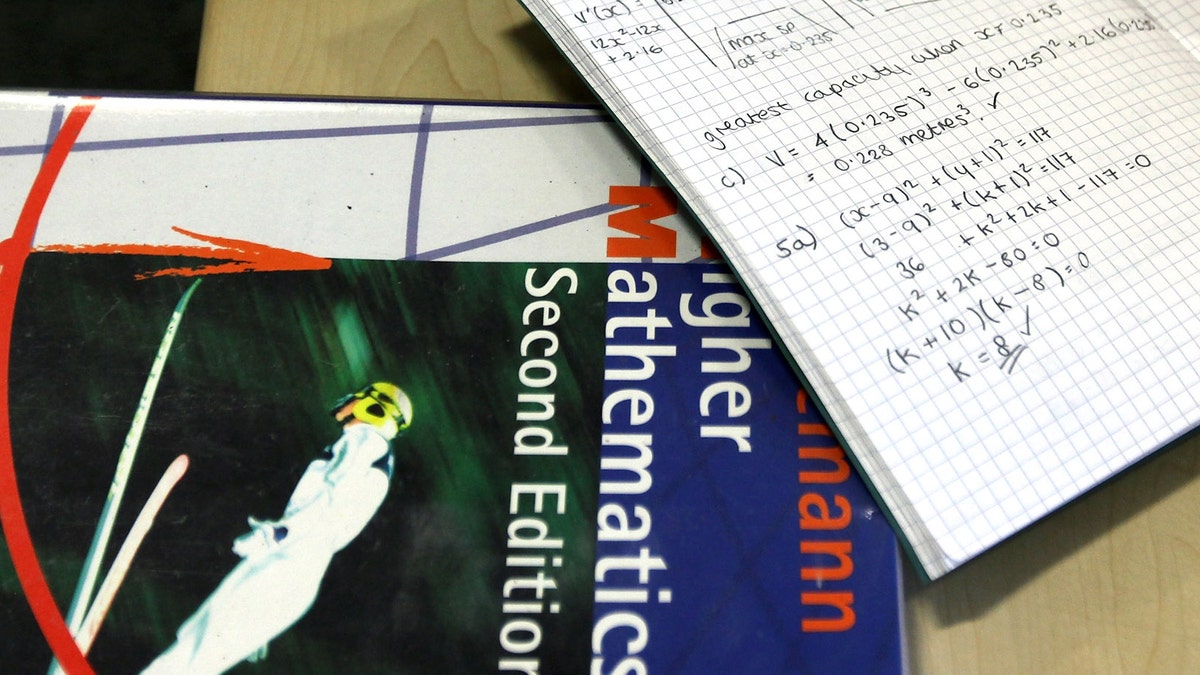
(Photo by Jeff J Mitchell/Getty Images) (2010 Getty Images)
The mystery behind the way a child puts together his or her earliest building blocks of math is beginning to unravel.
Scientists have found that what children know about numbers as they begin first grade seems to play a big role in how well they do everyday calculations later on.
And what this discovery means for parents is that there are steps they can take to spur math abilities, just like they do to try to raise a good reader.
About 1 in 5 adults in the U.S. lacks the math competence expected of a middle-schooler, meaning they have trouble with ordinary tasks and aren't qualified for many of today's jobs.
"It's not just, 'Can you do well in school?' It's how well can you do in your life," said Dr. Kathy Mann Koepke of the National Institutes of Health, which is funding much of this research on math cognition. "We are in the midst of math all the time."
Researchers at the University of Missouri tested 180 seventh-graders and found that those who lagged behind their peers in a test of core math skills were the same kids who'd had the least number sense or fluency way back when they started first grade.
"The gap they started with, they don't close it," said Dr. David Geary, a cognitive psychologist who leads the study that is tracking children from kindergarten to high school in the Columbia, Mo., school system. "They're not catching up" to the kids who started ahead.
This number sense, or what Geary more precisely terms "number system knowledge," turns out to be a fundamental skill that students continually build on, much more than the simple ability to count.
What's involved? Understanding that numbers represent different quantities — that three dots is the same as the numeral "3'' or the word "three." Grasping magnitude — that 23 is bigger than 17. Getting the concept that numbers can be broken into parts — that 5 is the same as 2 and 3, or 4 and 1. Showing on a number line that the difference between 10 and 12 is the same as the difference between 20 and 22.
Factors such as IQ and attention span didn't explain why some first-graders did better than others. Now Geary is studying if something that youngsters learn in preschool offers an advantage.
There's other evidence that math matters early in life. Numerous studies with young babies and a variety of animals show that a related ability — to estimate numbers without counting — is intuitive, sort of hard-wired in the brain, said Mann Koepke, of NIH's National Institute of Child Health and Human Development. That's the ability that lets you choose the shortest grocery check-out line at a glance, or that guides a bird to the bush with the most berries.
Number system knowledge is more sophisticated, and the Missouri study shows children who start elementary school without those concepts "seem to struggle enormously," said Mann Koepke, who wasn't part of that research.
While schools tend to focus on math problems around third grade, and math learning disabilities often are diagnosed by fifth grade, the new findings suggest "the need to intervene is much earlier than we ever used to think," she added.
Based on reporting by The Associated Press.
Follow us on twitter.com/foxnewslatino
Like us at facebook.com/foxnewslatino
